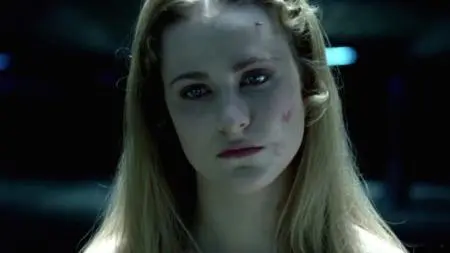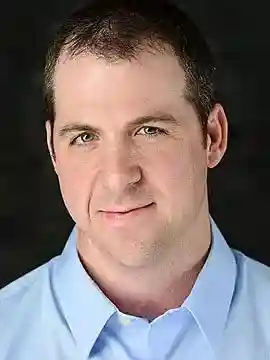Greetings LitReactor! I’m your new columnist, Fred Venturini, and we’ll be talking pilots in this space in 2017. This week, I’m taking on Westworld’s pilot, “The Original,” which launched a much-discussed and much-watched season run and marked the unofficial start to the career of roughly 10,000 Reddit detectives.
SPOILERS AHEAD
What makes a good pilot?
Dozens of ingredients, enough to create a mountain of craft books. I don’t have the space to write a craft book in one column. Here is a short “cheat sheet” I use when I’m viewing pilots with an eye towards analysis:
- Franchise (as in, what’s the franchise?, one of my favorite concepts to consider. Tip of the cap to William Rabkin’s Writing The Pilot, which has a whole chapter on this)
- Characters (duh)
- Conflicts (yes there should be more than one with the potential for many more)
- Construction (teasers, tags, acts, act breaks, how scenes are started and ended)
This is my basic starter kit. You may be screaming out, “What about the setting? What about the world? The supporting cast? The dialogue?” These are all subsets of the stuff I look at up top. For example, the world and setting are part of the “franchise” element as a whole.
After I take my notes and view the pilot three times or more, I ask myself a serious yet simple question that ignores all of the artsy-fartsy minutiae—is this fantastic, or a piece of shit? This lets me consider things like subtext and tone, which are better felt than analyzed.
A Franchise Pilot Done Right
“The Original” focuses on the franchise elements of Westworld. Some of the most interesting, critical characters take a back seat in this episode or appear in what amounts to small cameos. Why? To establish and service the franchise. The world is the star, the concept is the main character, and I make the case that some of the mysterious and vague Jonathan Nolan-y goodness is (Joker voice) all part of the plan.
As a writer, you should dream of setting up a franchise. It’s a story factory that doesn’t rely on any single character or actor. If Walter White dies on Breaking Bad, the series is over. However, in a franchise, you can knock off main characters all you want. Game of Thrones is a franchise. Star Wars can kill off Obi-Wan, Darth Vader, Han Solo, and keep banking billions. You get the point.
The park is the world, and we don’t leave it in the pilot. We barely leave it in the entire season, in fact. This may seem like it’s a “Westworld” and “real world” thing going on, but it’s all the park. There are the dusty plains and seedy towns in the crucible of the park’s “amusement” area, and then there’s the glass rooms, cold tile, and techno-lighting of the “management” area.
In “The Original,” the amusement area is where the hosts encounter conflict, and the debate about consciousness begins. The management area initially provides some rather droll workplace drama, where everyone has a role that seems to conflict with everyone else’s.
The pilot isn’t shy about promising the decay of the boundary that separates the dangers of the amusement area from the sterility and control of the management area, setting up future conflicts. The price of this setup is that at the outset, the management area scenes are anchored mostly by our curiosity about the show’s main conceit and premise, rather than the strength of the emerging conflicts. Everything seems so rote and polite in those early management-area scenes.
Is this a useful setup that pays off as the season progresses? Yes. But here’s where the difficulty in writing pilots comes in—if you’re Josephine Screenwriter with a fantastic show idea, and your pilot is mostly setup for all the juicy stuff yet to come, how likely is it that someone is going to take a chance on that? You’ve got 60 pages to knock someone out, and they’re probably only paying attention for the first five pages (if that) to decide if they want to finish reading your script. Do you hold back, or go for the knockout?
That said, "The Original" earns our patience with the weaker management scenes by dazzling us with the first act.
Land a Knockout—Fast
“The Original” starts with the oldest active “host” in the park, Delores, being questioned by Bernard about her role. More specifically, how it feels to be a host, and what she thinks of "the newcomers."
This incredible bit of character development and subtle exposition unspools while a "day in the life" of Delores unfolds in Westworld.
We know Delores is a host, but think that Teddy is a human "newcomer." Those expectations are wrecked when The Man in Black shows up. All hell breaks loose—an evil human absorbing bullets, depraved violence, and strong hints at an iceberg of a backstory.
Then, the first act ends and the show resets and moves through the sequence again, sticking us in the same loop as the hosts, bonding our sympathy to them as we transition into the "management" area and what Bernard's role is in the park.
This sequence is brilliant. In just fifteen minutes, we know and sympathize with the main character, we know the world, its central conceits, many of the rules, and we also know the central theme of the show.

The Franchise as Art
The pilot is dripping with literary flourishes. Consider the colors of red and white (often in a blood/milk combo). Notice the use of music and phrases which cue not only the hosts but eventually, the audience. The performances elevate the characters of the show (Anthony Hopkins left teeth marks on that show before bowing out, and Jeffery Wright modulated so perfectly, I think his performance helped the “detectives” figure out the twists early).
High Concept, Low Stakes
If someone handed me this pilot script and I didn’t know it was a hit show on HBO, I’d include the management of stakes as one of its weaker elements (in addition to the management area scenes of the pilot, mentioned above).
In “The Original,” there’s plenty of death and violence—but none of it sticks. Once we know the deaths aren’t real, every subsequent death means less. The only permanently “dead” entity in the pilot is the fly Delores smacks at the end, which is more of a thematic flourish than a death. The stakes of consciousness/soul, identity, freedom, are worthy, but easy to lose in the background of all of the non-permanent violence. From a certain angle, it’s like watching a video game where no one’s having fun.
Jonathan Nolan vs. Rube Goldberg
One of my friends once described the movie Inception this way: “It’s a Rube Goldberg machine with a dead wife in it.” Everyone was trying to solve the mysteries of that movie, and he just shrugged and said: “fuck it, it’s complicated for its own sake, I’m not playing the game.”
That stuck with me. Then, the TV world went through the True Detective theory hysteria, where theories and predictions pumped that show’s first season into something greater than itself, priming it for its inevitable fall from grace with the second season.
Which is to say, “The Original” and Westworld as a whole has an element that is probably a net strength, but it’s still a weakness to a lot of people—intentional vagueness and storytelling tricks used to conjure mystery where one isn’t even needed.
“The Original” is a pilot that made some viewers feel like they needed a secret decoder ring to participate in Westworld. The handling of time and the intentional plot and character muddiness masked as “literary” execution sacrificed some watchability.
This flaw worsens as we get into the next few episodes, when “White Hat” William starts his journey (in a separate timeline) to merge with our timeline and become The Man in Black.
This flaw is subjective, as I truly believe it’s part of the franchise and strategy of formulating its viral popularity. If someone is watching your show just to find out if their Reddit megathread is correct, who gives a shit? Westworld probably led the league in “viewer isn’t sure what to think, reads about six hot takes on what just happened, then formulates insightful Tweet about what they just witnessed.” The pilot is no different, and we have to watch the whole season to realize just how much they were hiding the ball.
Improve “The Original” in One Stroke
I’d ask myself “how can I make this pilot feel less like droll workplace drama wrapped in a sci-fi premise?” So I’d interject a little more dry humor to balance out the heft of the tone and aim for ONE permanent death in the pilot, instead of the “hey she killed this fly oh fuck they’re all in trouble now.”
Is This Fantastic, or a Piece of Shit?
As a viewer, I thought the pilot was excellent (and I enjoyed the entire season as a whole). However, the pilot telegraphed a heaviness in tone, ideas, and dialogue. Sometimes an episode would open with a soliloquy on the nature of consciousness, and it was like someone handing me a big ass rock saying “here, you hold this for the next hour.”
I should note that upon multiple viewings, you’ll become less fond of the show and the pilot, rather than more, which is typically the case with stuff that is truly fantastic.
I give it three “Black-hatted bandits shooting whores as part of a corporate team building exercise” out of four.
Final Thoughts
The strengths can teach you: if you’re writing your own pilot, file “The Original” away as a great example of franchise building. We know what the world is and what the central questions are within a few minutes. It isn’t gummed up with the white noise of world building, such as how the guns work. It gets into scenes at the right time, and leaves early, which builds tension, which is a must for great TV writing.
The weaknesses can teach you: don’t be too vague or hold back your best material or ideas for later episodes. Fire at least one of your “story cannons” in your pilot. Pay attention to the stakes—make sure they are high and get higher. Play for keeps. If someone talks for an entire page directly about your show’s theme, ask yourself if you’re Jonathan Nolan and rethink that strategy.
So that's it for "The Original." File your complaints and grievances in the comments, or throw out suggestions for future pilot breakdowns.

About the author
Fred Venturini grew up in Patoka, Illinois. His short fiction has been published in the Booked Anthology, Noir at the Bar 2, and Surreal South '13. In 2014, his story "Gasoline" is featured in Chuck Palahniuk's Burnt Tongues collection. The Heart Does Not Grow Back, published by Picador in 2014, is his first novel. He lives in Southern Illinois with his wife and daughter.








